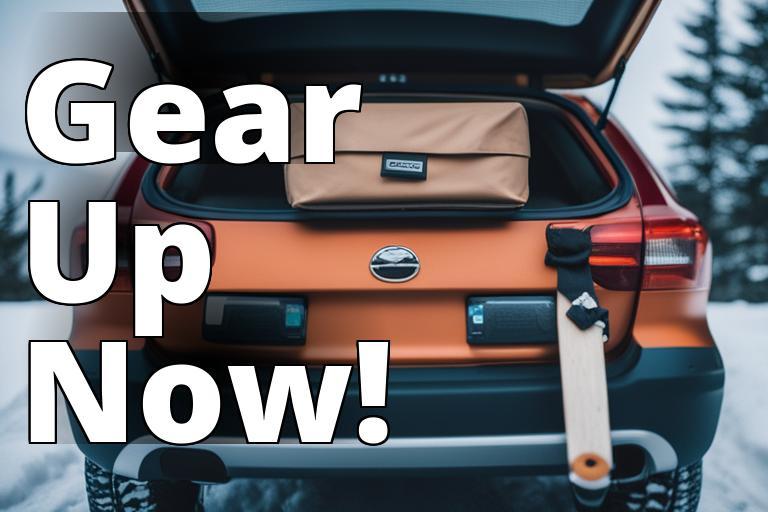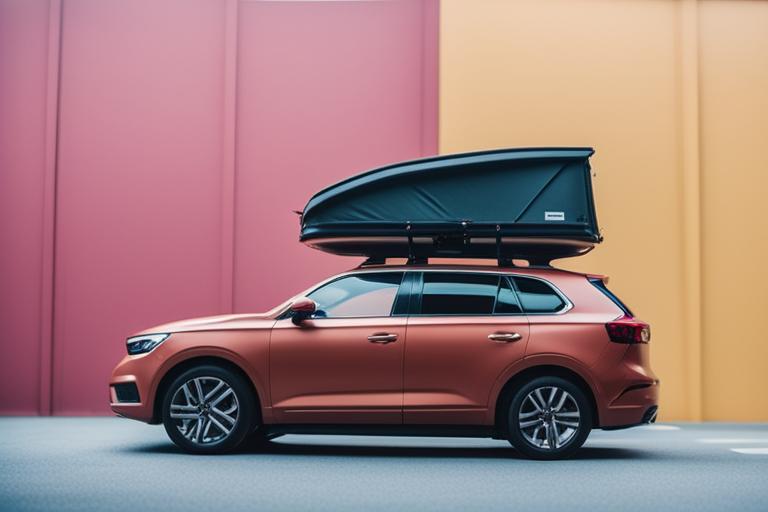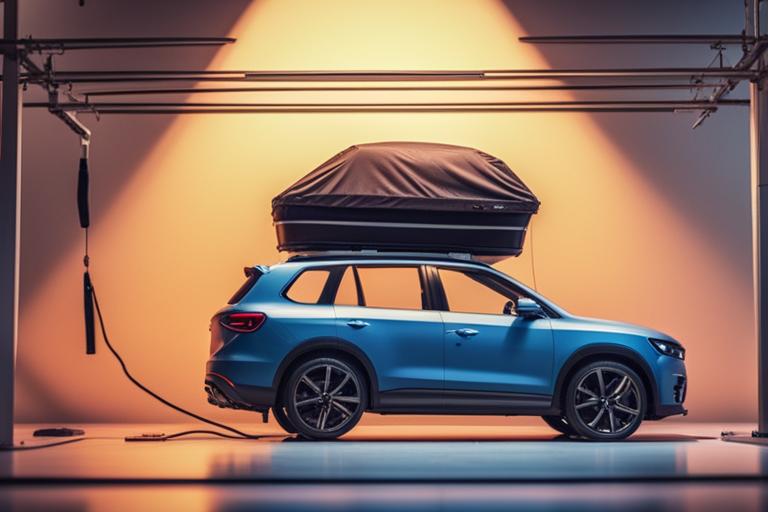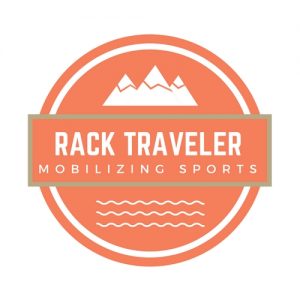
Are you planning your next adventure but struggling to decide whether to rent or buy a roof box? A roof box can be an excellent investment for outdoor enthusiasts, providing extra storage space for all your gear without sacrificing space inside your vehicle. However, with so many options available, it can be challenging to decide which is the best choice for you. In this ultimate guide, we’ll explore the pros and cons of renting and buying a roof box, factors to consider before deciding, and tips for installing and maintaining your roof box.
Renting vs. Buying a Roof Box: Which is Right for You?
Learn about the pros and cons of renting and buying a roof box for your next adventure with this guide.
– Renting offers lower upfront costs and flexibility, but limited availability and potential damage fees may be a disadvantage.
– Buying offers the ability to use whenever needed and convenience, but higher upfront costs and the need for long-term storage may be a disadvantage.
– Consider factors like frequency of use, vehicle size, and activities before deciding whether to rent or buy a roof box.

What is a Roof Box, and What are the Benefits?
Before we dive into the details, let’s define what a roof box is and discuss its benefits. A roof box is a storage container that mounts on top of your vehicle’s roof. It’s typically made of hard plastic and has a secure locking mechanism to keep your items safe while driving. Roof boxes come in various shapes and sizes to fit different vehicles and storage needs.
One of the most significant benefits of a roof box is that it increases your vehicle’s storage capacity without sacrificing interior space. It’s an excellent option for families or groups of friends who need to bring a lot of gear on a trip. Additionally, roof boxes are easy to install and remove, making them a convenient option for frequent travelers.
Renting a Roof Box: Pros and Cons
Renting a roof box is an excellent option for those who only need it for a short period. Here are some of the advantages and disadvantages of renting a roof box.
Advantages
- Lower upfront cost: Renting a roof box is usually less expensive than buying one. You can rent a roof box for as little as $50 per week.
- Flexibility: You can rent a roof box when you need it and return it when you’re done. This option is ideal for occasional travelers who don’t need a roof box year-round.
Disadvantages
- Limited availability: Rental companies may have a limited selection of roof boxes available, so you might not get the exact size or style you want.
- Potential damage fees: If you damage the roof box while using it, you may be responsible for repair or replacement costs.
Who is Renting a Roof Box Suitable for?
Renting a roof box is an excellent option for those who don’t travel frequently or have limited storage space at home. It’s also a good choice for those who want to try out a roof box before committing to buying one.
Buying a Roof Box: Pros and Cons
Buying a roof box is the right choice for those who travel frequently and need the extra storage space year-round. Here are some of the advantages and disadvantages of buying a roof box.
Advantages
- Ability to use whenever needed: With a roof box of your own, you can use it whenever you need it, without having to worry about rental availability.
- Convenience: Having a roof box at home means you can pack and prepare for your trip ahead of time.
Disadvantages
- Higher upfront cost: Buying a roof box can be expensive, with prices ranging from $300 to $1,500 or more.
- Need for long-term storage: A roof box takes up a significant amount of storage space when not in use, which may not be feasible for those with limited space at home.
Who is Buying a Roof Box Suitable for?
Buying a roof box is an excellent option for those who travel frequently and need the extra storage space year-round. It’s also a good choice for those who have ample storage space at home.
Factors to Consider Before Deciding Whether to Rent or Buy a Roof Box
Before deciding whether to rent or buy a roof box, there are several factors you should consider.
Frequency of Use and Length of Trips
If you travel frequently and take long trips, it may be more cost-effective to buy a roof box. However, if you only travel occasionally and for short periods, renting a roof box may be the better option.
Size of the Vehicle and Available Storage Space
Make sure to choose a roof box that fits your vehicle’s size and shape. Also, consider the available storage space at home if you decide to buy a roof box.
Type of Activities the Roof Box Will Be Used for
Think about the type of activities you’ll be doing and the gear you’ll need to bring. Some roof boxes are better suited for specific activities, such as skiing or camping.
Different |Type of Roof Box | Features | Pros | Cons |
| — | — | — | — |
| Cargo Box | Hard-shell container that offers ample storage space and is weather-resistant. | – Durable and weather-resistant
– Provides ample storage space | – More expensive
– Heavy and difficult to install |
| Cargo Bag | Soft-shell container that is more affordable and lighter weight than a cargo box. | – Affordable
– Lightweight and easy to install
– Folds down for easy storage | – Less durable and waterproof than a cargo box
– May not fit all vehicle types |
| Cargo Basket | Open container that is versatile and can hold odd-shaped items. | – Versatile and can hold odd-shaped items
– Lightweight and easy to install | – Provides less protection from the elements
– Can be noisy while driving|
Types of Roof Boxes and Their Features
When choosing a roof box, you’ll encounter different types, such as a cargo box, cargo bag, or cargo basket. Consider the features of each type, such as their capacity, durability, and ease of use. For example, a cargo bag may be more affordable than a cargo box, but it may not be as durable or waterproof.
Cost Comparison Between Renting and Buying a Roof Box
When deciding whether to rent or buy a roof box, it’s essential to consider the cost. Here’s a breakdown of the costs associated with each option.
Comparing Upfront Cost of Purchasing a Roof Box to Cost of Renting One for Multiple Trips
If you plan to use a roof box frequently, buying one may be more cost-effective in the long run. However, if you only need a roof box for a few trips each year, renting one may be the better option.
Additional Costs to Consider When Buying or Renting a Roof Box
In addition to the upfront cost, you should consider additional costs such as installation, storage, and potential damage fees.
Which Option is More Cost-Effective in the Long Run?
The most cost-effective option depends on your individual needs and usage. If you travel frequently and need a roof box year-round, buying one may be more cost-effective. However, if you only travel occasionally, renting a roof box may be the better option.
How to Find a Good Quality Roof Box to Rent
If you decide to rent a roof box, it’s essential to find a reputable rental company. Here are some tips for finding a good quality roof box to rent.
Researching Local Rental Companies
Research local rental companies and read reviews to find a reputable company.
Reading Reviews
Read reviews from previous customers to get a sense of the company’s quality and customer service.
Inspecting the Roof Box Before Renting It
Inspect the roof box before renting it to ensure it’s in good condition and has all the necessary parts.
How to Choose the Right Roof Box to Buy
If you decide to buy a roof box, it’s important to choose the right one for your needs. Here are some tips for choosing the right roof box to buy.
Considering Size and Shape of the Vehicle
Make sure to choose a roof box that fits your vehicle’s size and shape.
Type of Activities the Roof Box Will Be Used for
Consider the type of activities you’ll be doing and the gear you’ll need to bring.
Available Storage Space
Make sure you have ample storage space at home to store the roof box when not in use.
Different Features and Materials to Look for When Buying a Roof Box
Consider features such as aerodynamics, ease of use, and durability when choosing a roof box to buy. Also, consider the material, as some are more resistant to weather and wear and tear than others.

Tips for Installing and Using a Roof Box
Proper installation and use of a roof box are essential for safety and optimal performance. Here are some tips for installing and using a roof box.
Properly Securing the Roof Box to the Vehicle
Make sure to follow the manufacturer’s instructions for securing the roof box to your vehicle properly.
Distributing Weight Evenly
Distribute the weight of your items evenly inside the roof box to avoid overloading one side.
Avoiding Overloading the Roof Box
Don’t overload the roof box beyond its weight capacity, as this can cause damage or compromise safety.
Tips for Driving with a Roof Box
Drive carefully and avoid sudden movements or high speeds when carrying a roof box. Also, be mindful of low clearance areas such as parking garages or drive-thru lanes.
Maintenance and Storage of a Roof Box
Proper maintenance and storage of a roof box are essential for its longevity and optimal performance. Here are some tips for maintaining and storing your roof box.
Cleaning the Roof Box Regularly
Clean the roof box regularly to remove dirt, debris, and insects that can damage the surface.
Storing It in a Dry and Secure Location
Store the roof box in a dry and secure location, such as a garage or shed, when not in use.
Inspecting It for Damage Before Each Use
Inspect the roof box for damage before each use to ensure it’s in good condition and safe to use.
Tips for Maintaining the Roof Box in Good Condition
Apply a UV-resistant wax to the roof box to protect it from sun damage. Also, avoid using abrasive cleaners or tools that can scratch or damage the surface.
Personal Experience: Renting a Roof Box for a Family Road Trip
Last summer, my family and I decided to take a road trip to the beach. We wanted to bring all of our beach gear, but realized that our car didn’t have enough space to fit everything. We decided to rent a roof box for the trip.
We found a local rental company and chose a box that was the right size for our vehicle and our needs. The rental cost was reasonable and the company allowed us to keep the box for the entire week of our trip.
Installing the roof box was easier than we expected. The rental company provided clear instructions and we were able to secure the box to our car in about 20 minutes. During the trip, the roof box was a lifesaver. We were able to pack everything we needed for the beach, including chairs, umbrellas, and coolers.
Returning the roof box was also a breeze. We made sure to clean it out and inspect it for any damage before returning it to the rental company. Luckily, we didn’t incur any damage fees.
Overall, renting a roof box was a great option for us. It allowed us to bring everything we needed on our trip without having to purchase and store a roof box long-term. We would definitely consider renting a roof box again for future trips.
Conclusion
Whether to rent or buy a roof box depends on your individual needs and preferences. If you travel frequently and need the extra storage space year-round, buying a roof box may be more cost-effective in the long run. However, if you only travel occasionally or have limited storage space at home, renting a roof box may be the better option. Remember to consider factors such as the size and shape of your vehicle, the type of activities you’ll be doing, and the cost when deciding whether to rent or buy a roof box. With the right roof box and proper installation and maintenance, you can enjoy your next adventure with all your gear in tow.




